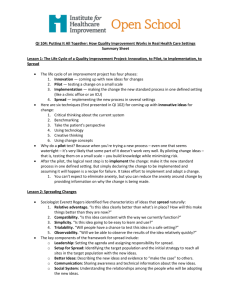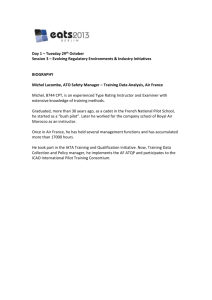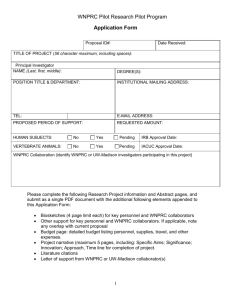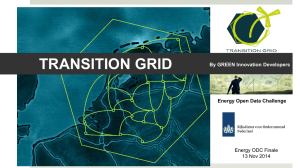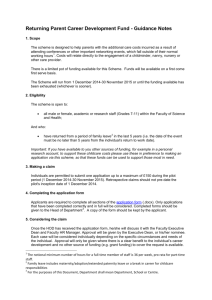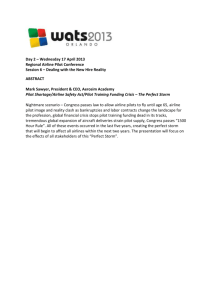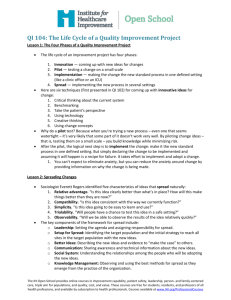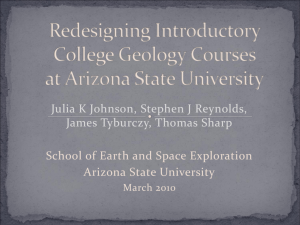open science
advertisement
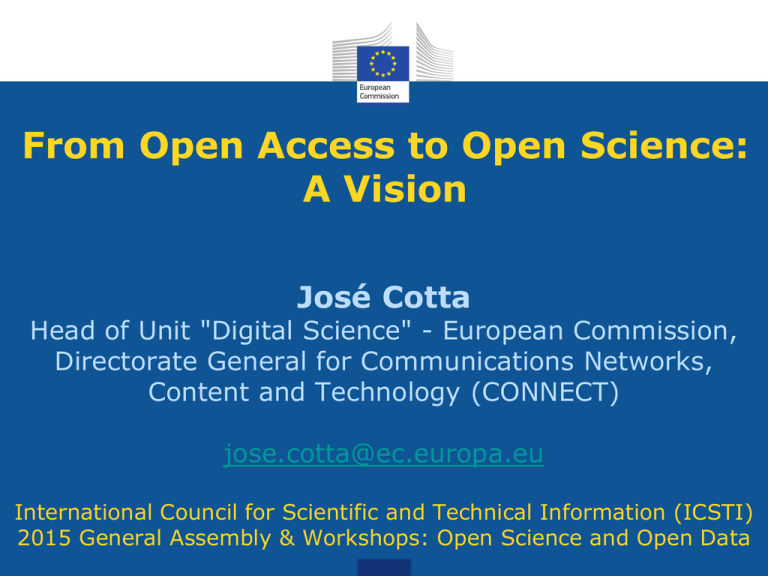
From Open Access to Open Science: A Vision José Cotta Head of Unit "Digital Science" - European Commission, Directorate General for Communications Networks, Content and Technology (CONNECT) jose.cotta@ec.europa.eu International Council for Scientific and Technical Information (ICSTI) 2015 General Assembly & Workshops: Open Science and Open Data A new Commission (2014-19) Andrus Ansip, Vice-President, Digital Single Market Günther Oettinger, Commissioner for Digital Economy and Society Carlos Moedas, Commissioner for Research, Science and Innovation Political Framing for Open Science Digital Single Market (DSM) DSM: An area in which individuals and businesses can access and exercise online activities under conditions of fair competition, with a high degree of consumer and data protection, irrespective of their nationality or place of residence One of ten Juncker priorities Importance of Research & Innovation for DSM: open science, free flow of data, including research data Copyright reform, including text and datamining (TDM) The broader policy context: Open Science Open Science is … the transformation and opening up of science and research and innovation through ICT, with the objectives of making science more efficient, transparent and interdisciplinary, and of enabling broader societal impact and innovation. Open Science: challenges • No access limitations • European Open Science cloud E-infrastructures for open science Open access to research results & processes • Alternative research evaluation/metrics for science and research • (Open) peer review • From isolated examples to research methods • New ways of funding research • Alternative publishing models • Research data standards, open metadata • Open source • Text and Datamining / copyright • Data protection issues • Science for innovation, e.g. ICT and Art Public engagement, citizen science, crowdsourcing Evidence-based policy making / Global Systems Science • Link science and society in policy decisions • Societal data deluge and data-intensive modelling • Science Advisory Mechanism (SAM) for researchers, research organisations and industry Commissioner view Carlos Moedas, Commissioner for Research, Science and Innovation "Open science is […] about making sure that science serves innovation and growth. It guarantees open access to publicly-funded research results and the possibility of knowledge sharing […]." Blog post by Commissioners Oettinger and Moedas (22 June 2015): Open science for a knowledge and data-driven economy https://ec.europa.eu/commission/20142019/oettinger/blog/open-science-knowledgeand-data-driven-economy_en Günther Oettinger, Commissioner for Digital Economy and Society Open Research Data in Horizon 2020 Pilot on Open Research Data in H2020 Three key questions: • Which thematic areas are covered? • What kind of data is covered? • What about data management? Pilot on Open Research Data: Scope Areas of the 2014-2015 Work Programme participating in the Open Research Data Pilot are: • Future and Emerging Technologies • Research infrastructures – part e-Infrastructures • Leadership in enabling and industrial technologies – Information and Communication Technologies • Societal Challenge: Secure, Clean and Efficient Energy – part Smart cities and communities • Societal Challenge: Climate Action, Environment, Resource Efficiency and Raw materials – except raw materials • Societal Challenge: Europe in a changing world – inclusive, innovative and reflective Societies • Science with and for Society Projects in other areas can participate on a voluntary basis. Pilot on Open Research Data: Opt-out Projects may opt out of the Pilot on Open Research Data in Horizon 2020 in a series of cases (submission stage): • If the project will not generate / collect any data • Conflict with obligation to protect results • Conflict with confidentiality obligations • Conflict with security obligations • Conflict with rules on protection of personal data • If the achievement of the action’s main objective would be jeopardised by making specific parts of the research data openly accessible (to be explained in data management plan) Opting out during project also possible Being in the Pilot does not mean opening all data Pilot on Open Research Data: requirements Types of data concerned: • Data needed to validate the results presented in scientific publications ("underlying data") • Other data as specified in data management plan (=up to projects) Beneficiaries participating in the Pilot will: • Deposit this data in a research data repository of their choice • Take measures to make it possible to access, mine, exploit, reproduce and disseminate free of charge • Provide information about tools and instruments at the disposal of the beneficiaries and necessary for validating the results (where possible, provide the tools and instruments themselves) Approach: as open as possible, as closed as necessary Data management in Horizon 2020 • Data Management Plans (DMPs) mandatory for all projects participating in the Pilot, optional for others • DMPs are NOT part of the proposal evaluation • To be generated within first 6 months of project, updates as needed • DMP questions: •What data will be collected / generated? •What standards will be used / how will metadata be generated? •What data will be exploited? What data will be shared / opened? •How will data be curated and preserved? • DMP: tool to determine what datasets can/cannot be open ORD Pilot: initial take-up • Preliminary! • Basis: 3054 Horizon 2020 proposals Calls in core-areas: opt out 24.2% (442 of 1824 proposals) – range from 9,1-29,1% Other areas: voluntary opt in 27.2% (334 of 1230 proposals) – range from 9 to 50% ORD Pilot: opt-out reasons among proposals 4.43 6.7 19.62 no data generated IPR protection confidentiality 23.41 privacy 24.68 jeopardize main objective 6.96 other ORD Pilot: approach to data management among proposals 6.9 data management plan 44.2 work package 49.23 other Open research data: work in progress • Structure and coverage of the pilot: to remain the same, at least until mid-term review; small incremental changes possible • DMP implementation: investigating bestpractice; tools to be developed (2015) • Focus on monitoring of OA policies for further policy development • Participating in the Pilot means coshaping European policy on opening up research data Resources H2020 Guidelines: Open access: http://ec.europa.eu/research/participants/da ta/ref/h2020/grants_manual/hi/oa_pilot/h20 20-hi-oa-pilot-guide_en.pdf Data management: http://ec.europa.eu/research/participants/da ta/ref/h2020/grants_manual/hi/oa_pilot/h20 20-hi-oa-data-mgt_en.pdf Resources Research Data: • B2Share http://eudat.eu/services/b2share (EUDAT) • Zenono http://zenodo.org/ (OpenAIRE) – focus on link with publications, communities • List of research data repositories: http://www.re3data.org/ Data Management Plan: • Digital Curation Centre https://dmponline.dcc.ac.uk/, http://www.dcc.ac.uk/resources/data-management-plans. Other institutions developing tools. EC resources are being developed. Key EC-funded projects supporting OA EUDAT: Pan-European infrastructure providing research data services - eudat.eu FOSTER: Facilitate Open Science Training for European Research www.fosteropenscience.eu OpenAIRE: OA infrastructure for Research in Europe. links 5800 repositories, Zenodo, heldesks. www.openaire.eu PASTEUR4OA: Open Access Policy Alignment Strategies for European Union Research www.pasteur4oa.eu RECODE: Policy Recommendations for Open Access to Research Data in Europe recodeproject.eu From Open Access to Open Science: A Vision Thank you! ICSTI 2015 General Assembly & Workshops: Open Science and Open Data
